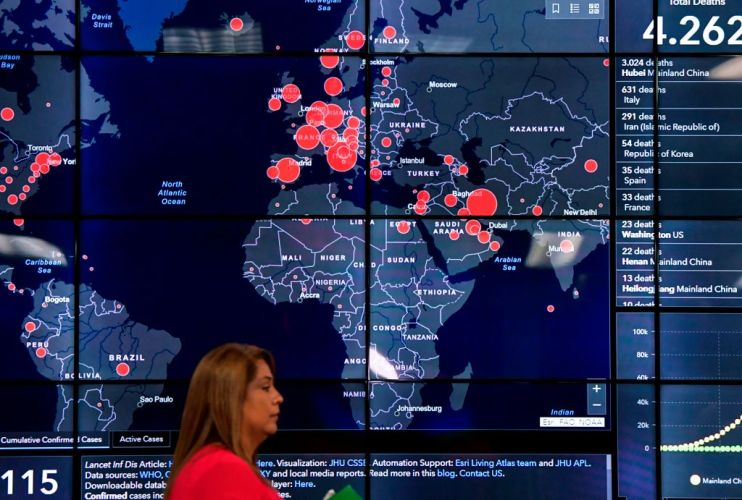Top scientists tap gamers to model spread of coronavirus

The scientist whose predictions about coronavirus prompted a nationwide lockdown has teamed up with gamers to launch a simulation mapping the potential spread of the pandemic.
Professor Neil Ferguson, a top data modeller at Imperial College London, is working with John Carmack, chief technology officer at Oculus VR and lead programmer on video games Wolfenstein 3D, Doom and Quake, to create Covid-sim.
“We’ve been working with Microsoft very intensely,” Ferguson told the Sunday Times.
“The aim is to produce a website where the public or governments or public health agencies can ask about the state of the epidemic in their country and see the impact of different interventions.”
Earlier this month Ferguson’s team released a groundbreaking report predicting 250,000 people would die from coronavirus in the UK unless strict measures were taken to halt the spread of the disease.
The stark warning, which also predicted that deaths could be limited to under 20,000 if appropriate measures were taken, is said to have convinced Prime Minister Boris Johnson to initiate a full lockdown.
The UK death toll has now passed 1,000, with more than 17,000 confirmed cases, though Johnson has warned that the crisis is yet to hit its peak.
“This is by far the most serious public health threat I’ve worked on in my career,” Ferguson said. “Even if you just look at the mortality, even in younger age groups, it’s way in excess of seasonal influenza.”
Ferguson’s modelling clashed with a recent report released by Sunetra Gupta, a former colleague at Oxford.
The Imperial modeller said Gupta’s suggestions that up to half of Brits could be infected — but that less than one in a thousand was at risk of serious illness — had “no supporting data”.
Nevertheless, Ferguson’s research suggests that the disease could be trivial for up to 50 per cent of people.
Ferguson said increased testing was key to fighting the virus, while a vaccine was essential as a long-term strategy.